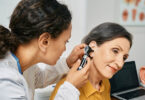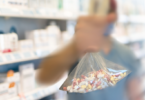This summer, are you prepared to protect yourself from a burn injury?
Whether you’re staying in the city, heading to a cottage or taking your chances with the weather and going camping, there are a few simple things you can do to stay safe and injury-free.
Dr. Marc Jeschke, medical director of Sunnybrook’s Ross Tilley Burn Centre (RTBC), says that common sense can prevent many of the injuries his centre sees each summer.
“In the summer, you’re more relaxed, maybe some alcohol is involved. This is when burn injuries can happen,” says Dr. Jeschke. Here are some of the most common causes of burn injuries RTBC staff see, and how to prevent them:
BBQs
When barbecuing, Dr. Jeschke says, stick to the rules: use fireproof gear, don’t put gasoline or igniter fluid on the grill and don’t wear loose, flowing clothing while cooking.
“With loose clothing, you turn around quickly or get too close, and the fire ignites the clothes. You then have a major injury for no reason whatsoever,” says Dr. Jeschke.
He recommends waiting until after you’ve finished cooking to consume alcohol. The same principle applies to tabletop fireplaces, which have been growing in popularity as a backyard patio feature.
“These can be dangerous because they’re at the exact same height as small children and pets. Keep loose clothing away from these too, and don’t throw any accelerants on them,” he says.
Camping
When camping, there can be a lack of familiarity with the tools you’re using. For example, while you use your stove at home every day, you don’t use your camp stove every day. The same goes for cooking over an open fire or refilling lamps with kerosene or gasoline.
“Do not pour gasoline or another igniter fluid onto a fire that’s already burning, whether it’s a bonfire or a camping lamp. The fire can come right back up into the container you’re holding, which will then explode,” he says.
Always have a container of water nearby or a garden hose on standby before starting the fire.
Fireworks
“Fireworks can be dangerous because if a large number of fireworks blow up, you get explosive burns,” says Dr. Jeschke.
Read safety instructions for fireworks before using them, and don’t let children be around them unattended. Don’t use fireworks inappropriately, like letting them explode in your hands or holding them while igniting them.
If you do suffer a burn:
If it’s a significant burn, call 911. While waiting for help to arrive, don’t put butter, vinegar, oil or lemons on the burn.
“The best initial treatment for all burns is cool running water. Don’t soak the injured area, just let the water run over it,” says Dr. Jeschke.








